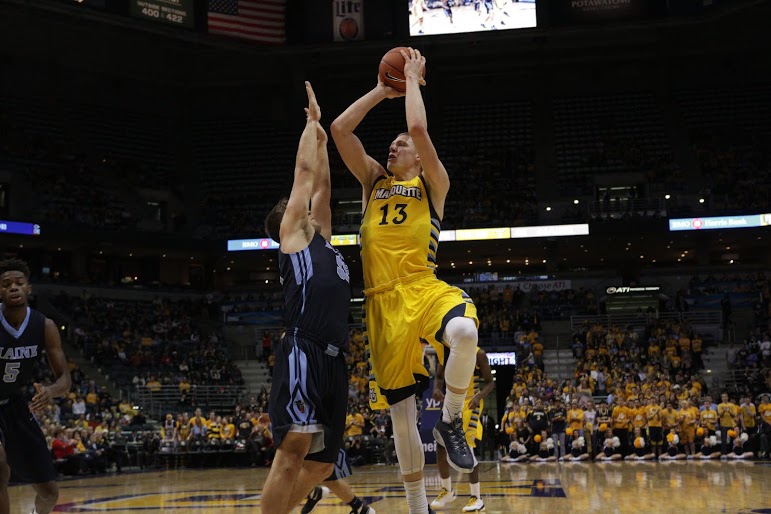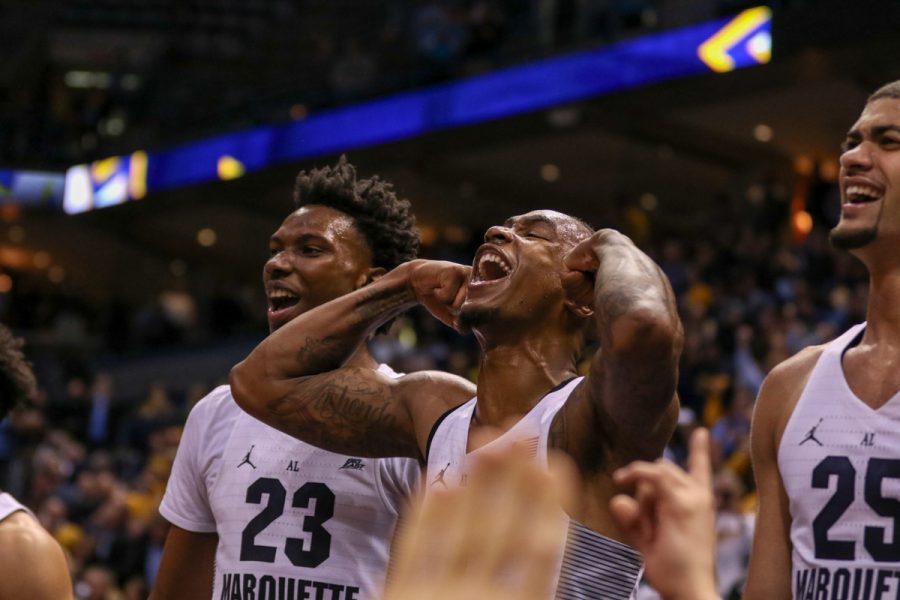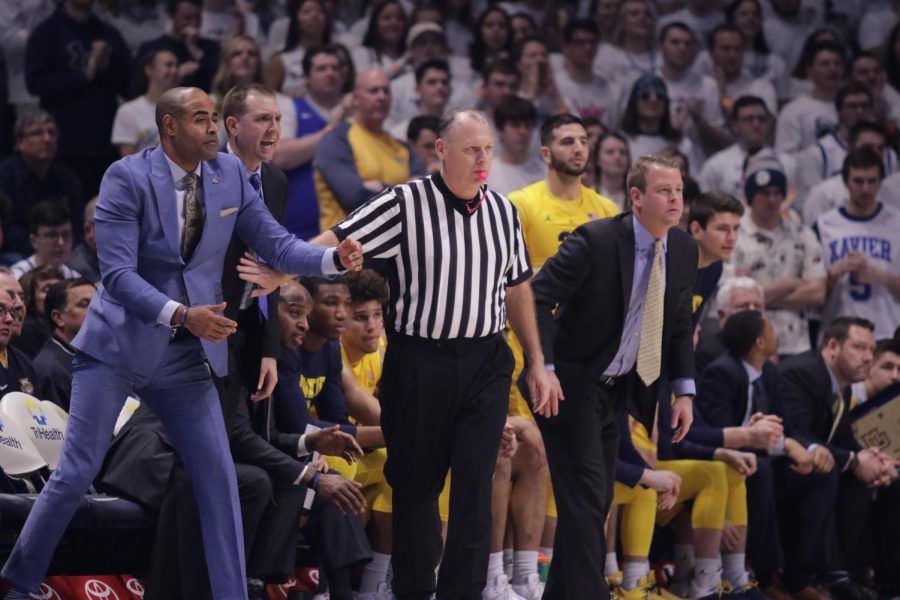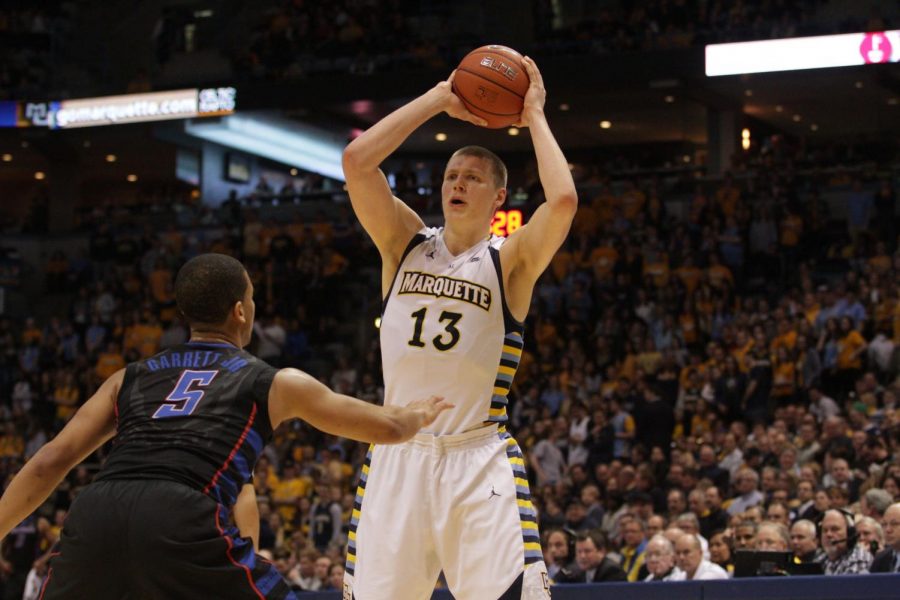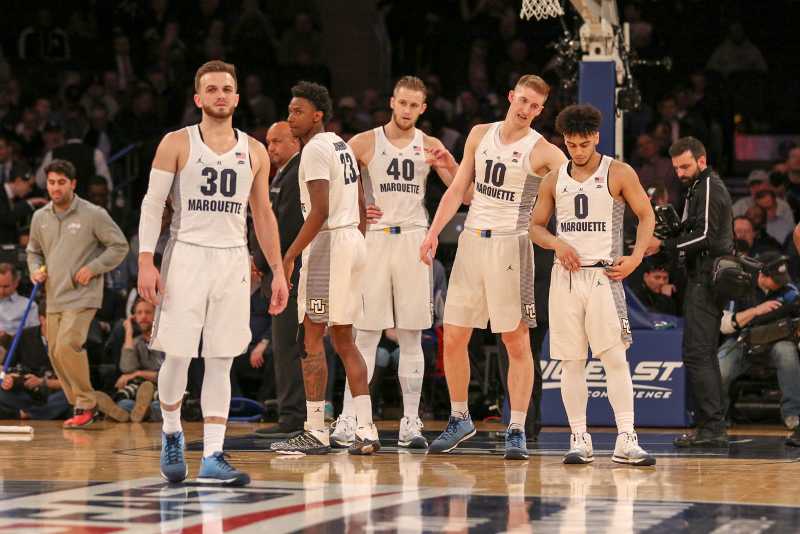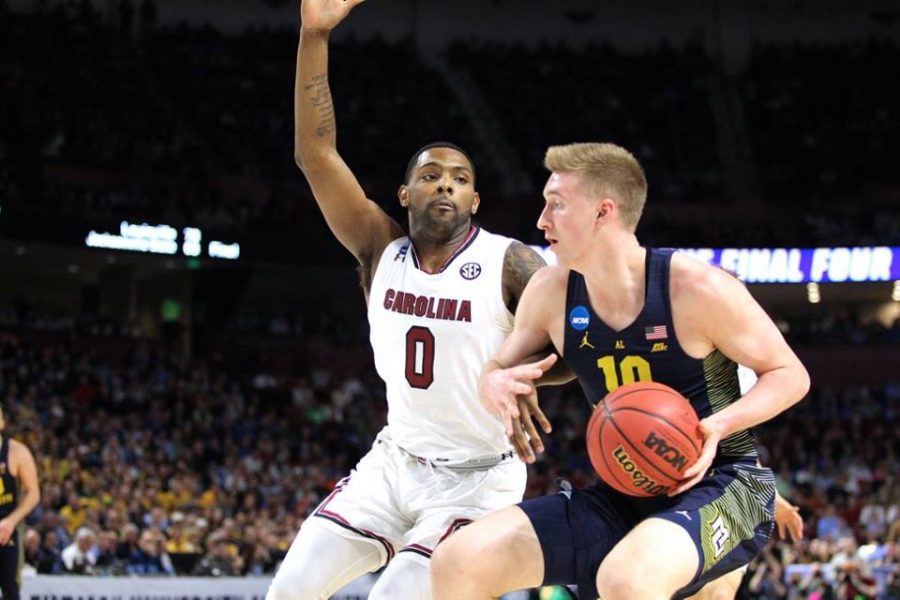Wisconsin will beat Marquette on Saturday. Handily.
The main advantage that Wisconsin has over Marquette is its unconventional swing offense, which emphasizes ball movement, screening and cutting out of a half-court set. Swing offenses are exceedingly slow, deliberate and methodical, which is why the Badgers rank No. 339 in the country in adjusted offensive tempo, according to KenPom. Beating the swing requires disciplined off-ball defense for the entirety of a possession.
This does not bode well for Marquette, which has a fairly weak track record in half-court defense, especially against teams that run off-ball action. Belmont, for instance, got Marquette to abandon its man-to-man principles and chase the ball by running plenty of screens. Once Henry Ellenson or Jajuan Johnson collapsed in on a Belmont dribbler, he either kicked it back out for an open three-pointer or tossed it down low for an easy backdoor bucket.
This was not a problem against teams like LSU and Arizona State, which run fairly vanilla, isolation-heavy offenses, but Wisconsin’s attack thrives off confusing opposing defenses with complex off-ball patterns. So far, Marquette has not consistently shown the ability to stop these offensive machinations against high-level competition.
Marquette also does not have a great overall defensive track record this year. They have played four teams that rank in the top third in the NCAA in offensive efficiency and have surrendered 80 points to three of the four. Furthermore, Wisconsin ranks 31st in the country in adjusted offensive efficiency, which is the measure of points scored per 100 possessions adjusted for various outside factors. The Golden Eagles have played two other teams that rank in the top 35 in offensive efficiency, Iowa and Belmont, and not only lost to both of them, but allowed them to shoot a combined 51.5 percent from the field.
None of these statistics or observations are particularly surprising when you consider how young Marquette is. The Golden Eagles’ average player experience is 0.86 years, which is good for 344th in the country. These players will likely get a lot better at defending this sort of half-court offense with time and experience, but they are nowhere near good enough at it right now to stop Wisconsin.
Speaking of new experiences, this will be Marquette’s first true road game. Their victories over LSU and Arizona State involved travel, but those games were played in front of a predominantly neutral crowd of about 5,000 people. Call me crazy, but one of the youngest teams in the country playing their first road game of the season against their biggest rival in front of 17,000 especially antagonistic fans doesn’t sound like a recipe for success.
This does not just pertain to Marquette, either; young and well-regarded teams like Kentucky, Duke, LSU and North Caroline State all lost their first non-home game against quality competition. Wisconsin is in this category as well; they rank 292nd in average experience and they lost by 10 to Georgetown in their first neutral court game and by 17 to Oklahoma in their first road game.
There are plenty more reasons to think Marquette will lose – its 20.7 percent turnover rate, a relative dearth of preparation due to its weak December schedule, its unending love of contested three pointers, etc. – but the main reason is simply lack of experience. Marquette is a good team that will continue to get better and may very well contend for an NCAA Tournament spot, but we all know that most of the time, tough losses are required for young teams to get to that point.
The Wisconsin game will be one of those losses.

